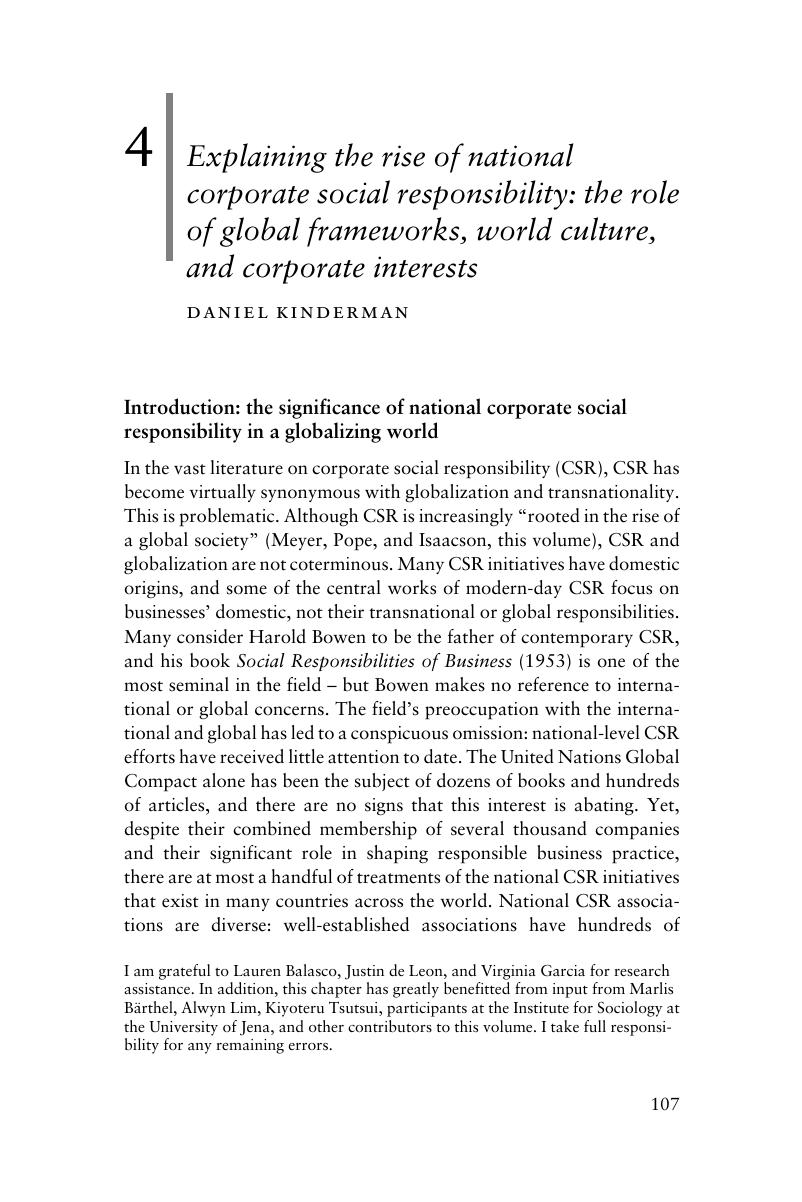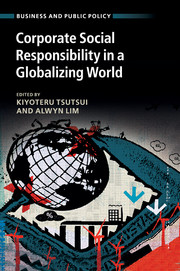Book contents
- Corporate Social Responsibility in a Globalizing World
- Business and Public Policy
- Corporate Social Responsibility in a Globalizing World
- Copyright page
- Dedication
- Contents
- Figures
- Tables
- Notes on contributors
- Book part
- 1 The social regulation of the economy in the global context
- Part I Legitimation and contestation in global corporate responsibility
- 2 Legitimating the transnational corporation in a stateless world society
- 3 Corporate social responsibility and the evolving standards regime: regulatory and political dynamics
- 4 Explaining the rise of national corporate social responsibility: the role of global frameworks, world culture, and corporate interests
- Part II Social construction and field formation in global corporate social responsibility
- Part III Corporations’ reaction to global corporate social responsibility pressures
- Part IV The impact of global corporate social responsibility pressures on corporate social responsibility outcomes
- Index
- References
4 - Explaining the rise of national corporate social responsibility: the role of global frameworks, world culture, and corporate interests
from Part I - Legitimation and contestation in global corporate responsibility
Published online by Cambridge University Press: 05 May 2015
- Corporate Social Responsibility in a Globalizing World
- Business and Public Policy
- Corporate Social Responsibility in a Globalizing World
- Copyright page
- Dedication
- Contents
- Figures
- Tables
- Notes on contributors
- Book part
- 1 The social regulation of the economy in the global context
- Part I Legitimation and contestation in global corporate responsibility
- 2 Legitimating the transnational corporation in a stateless world society
- 3 Corporate social responsibility and the evolving standards regime: regulatory and political dynamics
- 4 Explaining the rise of national corporate social responsibility: the role of global frameworks, world culture, and corporate interests
- Part II Social construction and field formation in global corporate social responsibility
- Part III Corporations’ reaction to global corporate social responsibility pressures
- Part IV The impact of global corporate social responsibility pressures on corporate social responsibility outcomes
- Index
- References
Summary

- Type
- Chapter
- Information
- Corporate Social Responsibility in a Globalizing World , pp. 107 - 146Publisher: Cambridge University PressPrint publication year: 2015
References
- 16
- Cited by



